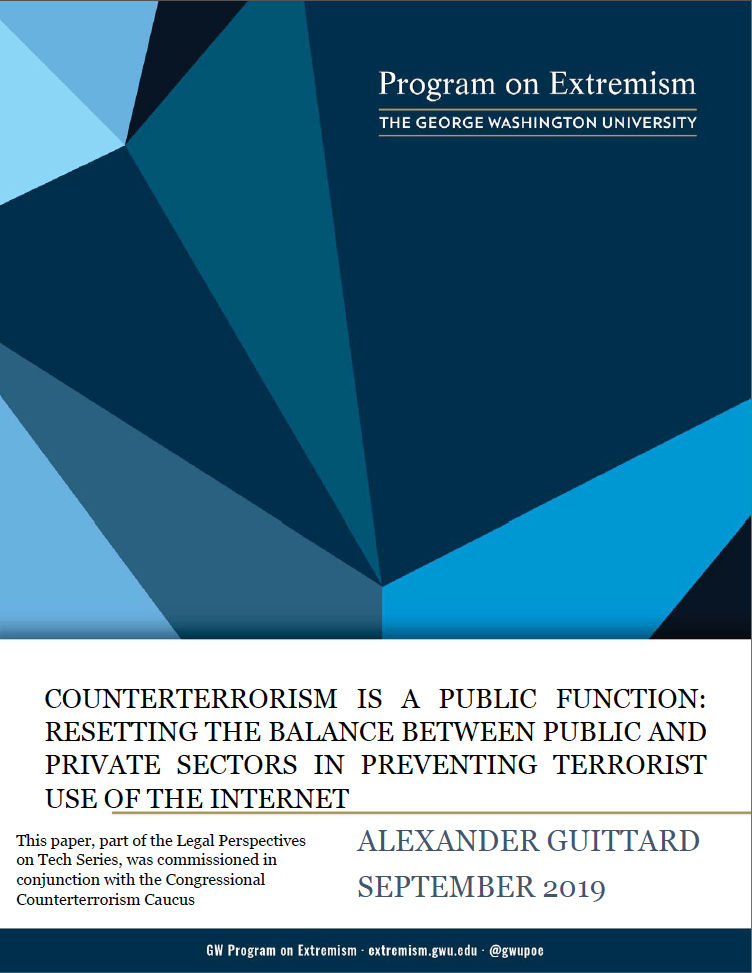In the closing scene of The Social Network, one of Mark Zuckerberg’s lawyers marveled at Facebook’s global expansion, asking “In Bosnia, they don’t have roads, but they have Facebook?” While the statement (and much of the film) was factually incorrect, it captured the "move fast and break things” mentality of companies like Facebook as they revolutionized the way people around the world communicate. Despite its benefits, this revolutionary shift in communications has posed several public policy challenges, from election integrity to the erosion of local journalism to terrorism. As someone who has worked in counterterrorism for nearly a decade, first in government and now from the private sector, I’ve seen this evolution firsthand.
To date, most efforts to deny terrorists the benefits of a free and open internet are voluntary and industry-led. These include the Global Internet Forum to Counter Terrorism and its Hash Sharing Consortium, the expansion of dedicated counterterrorism teams at Facebook and Google and the launch of initiatives such as YouTube Creators for Change. These are positive and socially responsible initiatives that should be encouraged to grow.
However, the U.S. government – both its political leadership and its CT experts – should not take the convenient route of outsourcing difficult public policy issues to private companies. These issues should be addressed legislatively and in partnership with industry. Curbing terrorists’ use of the internet begs important social questions about the limits of free speech, the definition of terrorism, and national sovereignty over the internet at a time when the U.S. public is increasingly skeptical of the ability of internet companies to act in the public interest.
By examining similar experiences balancing security with technological advancement, CT policymakers will see that cooperation with the private sector is often contentious at first, with industry eschewing new regulations. This paper will examine three such cases: the restriction of radio in WWI, the introduction of counter-money laundering requirements on banks, and the introduction of airline passenger screening. These cases show when the government acts within its Constitutional authorities to set clear expectations and work with industry in good faith, industry, government, and the public benefit.


